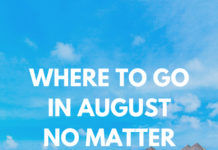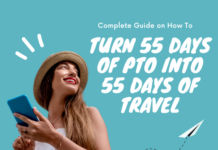Let me start by stating that I am not a therapist and have no experience in mental health issues other than what I have been through personally.
I have had many situations in my life that have caused anxiety. Health scares, hurricanes, job interviews, traffic, but nothing had prepared me for the type of anxiety I would feel during this pandemic. Those other situations didn’t even come close. It was moments of worry and perhaps some lost sleep, but it did not have any other physical effects that I was aware of. Occasionally I have panic attacks. I will be fine one moment, and the next, my heart is pounding out of my chest, along with sweaty palms, my skin gets hot & flushed & I even get rashes. It can take hours to calm down. Anxiety is understandable. There is plenty to be anxious about. There is the virus itself (I have a ton of pre-existing conditions, including an autoimmune disease,) financial concerns & so many unanswered questions. When will there be a treatment? A vaccine? Flu season is around the corner. The tragic loss of lives is all over the news. The list goes on and on and there is so much that is out of our control.
I started therapy about two months ago and he assures me that my anxiety is normal. The situation is complicated, ever-changing, and unprecedented. But why is this anxiety so different from anything I have ever dealt with in the past? I have learned in this short time that the why isn’t as important as how can I manage and get through the anxiety. One particular challenge I have is that I am a travel consultant. I am expected to travel for my job. If I am worried about a trip to the grocery store, how will I get on an airplane or cruise ship?
The first step is to recognize that there are good things in our daily lives and it’s important to focus on our blessing and not just the negative things occurring around us. Also, seek help from a professional, a friend, or a family member. Don’t try to handle things alone.
How to Deal with Travel Anxiety
Travel is my passion. Even in an uncertain world, I still believe in the magic of travel. Travel provides the joy of dreaming, the anticipation of the experience, the power to gain new knowledge, and create memories that last a lifetime. Research shows that travel is highly beneficial for your physical, mental, and emotional health as well. Travel also affords the opportunity to engage in culturally enriching experiences, while supporting the local people that rely on tourism for their livelihoods. I can’t let my current fears and concerns stop me from doing something that I love.
Here are some things you can do in order to help alleviate your anxiety.
Allow yourself to feel the fear
Write them down. There are exercises you can find online that have you focus on writing down all of your fears. It helps you get a better perspective on your concerns or to develop a plan to work around your fears. If one of your issues is being alone, then travel with a friend or family member if possible. If it’s flying, then perhaps take a road trip
Speak To Your Doctor or Therapist
Seeing your doctor &/or therapist before a trip can help ease concerns. He or she can evaluate your current health and perhaps prescribe any medications you could have with you should you start to feel ill while away. If it applies, you could also discuss possible medications to ease anxiety. A therapist can help you with coping strategies if you let them know what about travel is causing anxiety. For me & many others currently, it’s being exposed to the virus.
Choose the Right Destination
Perhaps plan around that fact. Evidence supports that being outdoors is safer than being indoors. Perhaps go river rafting or take a tour of the National Parks. Researching online can be a bit overwhelming. A travel agent can help you with advising of where recent clients have travelers safely. Rent a house or villa where you can go in and disinfect it to feel safe, and then you are just in your group of family or friends versus being around others.
Essential Items To Have With You
Planning helps ease fears and concerns. Have extra masks, hand sanitizers & wipes. Check out our blog on essential items to have in your carry-on bag. Once you have all of that in place, focus on comfort. What can you bring from home that helps your small space feel comfortable? A blanket, pillow, or perhaps a cotton ball with some relaxing essential oils. Lavender, bergamot, rose, basil, ylang-ylang, chamomile, and neroli have all been found to calm anxiety. You can learn more about essential oils by reading New Year’s Lucky Scents.
Next on the list is having distractions. A pair of noise-canceling earphones are a must! Take things with you that you enjoy. Listen to music, watch a movie, read a book, or play some games to keep your mind busy. There are plenty of games available without Wi-Fi. We share them on our post Best Iphone Games for Airplane Mode. Don’t forget a portable charger! Crystals To Help With Travel Anxiety
If you are driving, then set up a road trip playlist in advance. Also, make sure and have your car checked out before you hit the road. Check that your AAA membership is up to date, or make sure you have jumper cables, a spare tire, and a first aid kit in your car just in case. Pack a cooler with water and some of your favorite snacks so you don’t have to stop frequently. If you like planning ahead, map out your road trip stops. From gas stops to must-see sites, there are plenty of apps to help you plan a road trip.
Focus on Your Breathing
I recently started guided meditations and they are great in helping clear the mind of anxiety. Practice focusing on your breathing when you feel the anxiety coming on. When you feel anxious, breathe in through your nose for 2 counts, hold it in for 2 counts and then exhale gently for 4 counts. Repeat this 5 to 10 times. You will find that focusing on your breathing quiets the mind and, therefore the anxiety. Deep breathing can also greatly help keep other symptoms from escalating, such as rapid heart rate or chest pain.
Develop Calming Techniques
Practice meditation, visualization & relaxation techniques and strategies in the weeks before you travel. Regular practice is key to learning to sit with uncomfortable thoughts and getting through. You must be able to quiet your mind even with other people and distractions around you. This, again, is where the right app with guided meditation, mindfulness techniques or music, and noise-canceling headphones will be key. Practice leaving a tv on at home or d a short meditation during a break at work where there is noise around you. It is possible to focus on your breathing and quiet the mind, it just takes time & practice. Remember that these strategies won’t work every time or for everyone, but try them out and see what helps you. My therapist also suggests affirmations. For example, “I have been through this before” “I will get through it” “I am okay” or “These feelings shall pass.”
My favorite apps for meditation and relieving stress are Headspace, Shine & Calm. Shine offers a daily free mediation of 5 to 10 minutes each, that focus on various topics.
Start Out Slow
Don’t jump on an 8-hour flight to Europe if you feel anxious about travel. Start out slowly. Perhaps consider a road trip where you can research a hotel not too far from home where you feel comfortable that they are taking all the necessary precautions. Take a short flight, or a 3-day cruise when they resume. Short trips will help you gain confidence. Fear can start to be replaced by relaxation, optimism, and hope.
If you don’t feel ready to go far, then a staycation it is! Take a few days off and perhaps take local day trips in your area to a park, beach, zoo, museum, farmers market, or somewhere you normally don’t go during your busy schedule.
Leave Your Worries Behind
Your vacation is a time to destress and focus on yourself. Take a walk in nature. Take a nap. Unplug from the news. Take time to reflect on what you need more of in your life. With practice and preparation, you may be able to travel without taking your panic and anxiety with you, or at the very least manage it so it doesn’t hold you back.
Note: We share tips for health, travel & preparedness, but this is not official medical advice. Please contact your medical professional if you have questions, symptoms or concerns.








